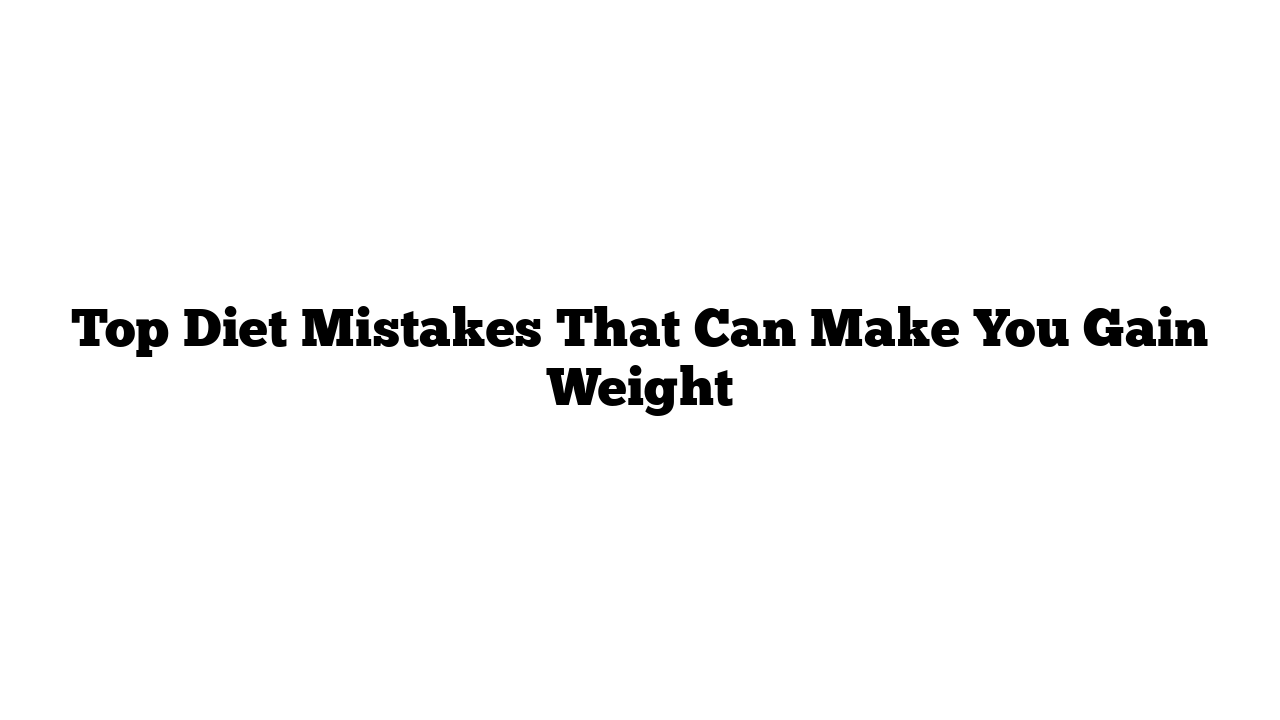It’s easy to get caught up in the many diet trends out there, especially with so much conflicting advice. You can work out hard, but if you’re making some key diet mistakes, your efforts to lose weight might be wasted. Let’s take a look at some of the most common diet mistakes that could be keeping you from shedding fat and reaching your health goals.
1. Meal Frequency Myths
Many people believe that eating five or six small meals a day keeps your metabolism high, helping you burn fat. While it sounds logical, the reality is different. Studies show that the number of meals you eat per day has no significant impact on your 24-hour calorie intake or expenditure.
What really matters is how many calories you consume overall. Whether you eat two meals or six, if you’re not in a calorie deficit, you won’t lose weight. In fact, eating more frequently can make it harder to control your total calorie intake. Bottom line: Focus on what works for you. If many meals are making you overeat, try reducing your meal frequency.
“It’s not how often you eat, but what and how much you eat that matters the most.”
2. Overthinking the Small Stuff
It’s easy to get caught up in the small details—organic vs. non-organic, broccoli vs. cauliflower, or boiled vs. raw veggies. While these are interesting discussions, they won’t have much impact on your fat loss. The big picture is simple: eat fewer calories than you burn and ensure you get enough protein.
Don’t stress about the finer details. Stay focused on the basics: calorie deficit and protein intake. These will guide you to success.
3. The High-Fat, Low-Carb Trap
Low-carb diets like keto or paleo can help with weight loss for some. They work because they often lead to a reduction in calorie intake by limiting carbs, which are commonly over-consumed. But a common mistake is thinking that more fat equals more fat loss.
Yes, your body might burn more dietary fat on a high-fat diet, but that doesn’t mean it’s burning body fat. To lose body fat, you must still be in a calorie deficit. Loading up on extra fat—like adding butter to coffee or taking spoonfuls of coconut oil—will add unnecessary calories and slow your progress.
“Eating fat doesn’t burn fat. It’s the calorie deficit that counts.”
4. Weekend Diet Blowouts
A common pitfall is being strict Monday through Friday and then completely letting go on the weekend. While it’s okay to enjoy yourself, undoing your hard work over the weekend can erase your calorie deficit from the week.
Balance is key. If you’re going to have a cheat day, plan for it by reducing your calories on other days. Make sure your weekly calorie intake stays in line with your goals.
5. Believing You Can’t Get Fat Eating “Clean”
Eating whole foods—like fruits, veggies, and lean proteins—is great for your health and can help with weight loss. However, even healthy foods have calories. If you eat too much of them, you’ll still gain weight.
For example, nuts are healthy but high in calories. Overeating them can easily put you in a calorie surplus. Healthy food still has calories, so portion control is critical.
“Just because it’s healthy doesn’t mean it’s calorie-free.”
6. Juicing as a Fat Loss Strategy
Many people turn to fruit and vegetable juices for weight loss. While these juices are full of vitamins, they also tend to be high in sugar and calories. Drinking these sugary juices regularly can quickly sabotage your fat loss efforts.
If you enjoy smoothies, prioritize vegetables over fruit and keep the portions small.
7. Not Tracking Your Food Intake
If you’re not tracking your food intake, it’s easy to underestimate how much you’re eating. Studies show people often underestimate their calories by up to 2,000 per day! For beginners, using an app like MyFitnessPal can help you get a better understanding of your daily intake.
Once you have experience, you may not need to track forever. But in the beginning, tracking is a powerful tool to ensure you’re in a calorie deficit.
8. Falling for Celebrity and Fad Diets
Many people are drawn to celebrity diets and fad meal plans. Unfortunately, many of these diets are unsustainable and not based on science. Even if it worked for a celebrity, that doesn’t mean it will work for you.
For instance, extreme cleanses that promise rapid weight loss often lead to muscle loss and nutrient deficiencies. Stick to a balanced diet that you can maintain long term rather than chasing quick fixes.
9. Not Drinking Enough Water
Water is an often overlooked tool in weight loss. Not only does it keep you hydrated, but it also helps control hunger. Drinking water before meals can help reduce your calorie intake by making you feel fuller.
People who drink more water tend to consume fewer calories overall. So, drink up!
10. Not Eating Enough Protein
Protein is key for fat loss. It’s the most filling macronutrient, and eating more of it can help you stay in a calorie deficit. In one study, increasing protein intake helped people reduce their calorie intake by 440 calories a day, leading to significant weight loss.
Make protein the star of your diet to help control hunger and preserve muscle mass while losing fat.
If you want to lose fat and improve your body composition, avoiding these common mistakes can help. Remember, it’s the basics—calorie deficit, protein intake, and consistency—that will get you the best results.
Need more personalized help? Visit our website for custom nutrition plans and coaching tailored to your specific goals.
